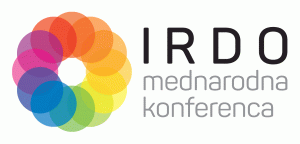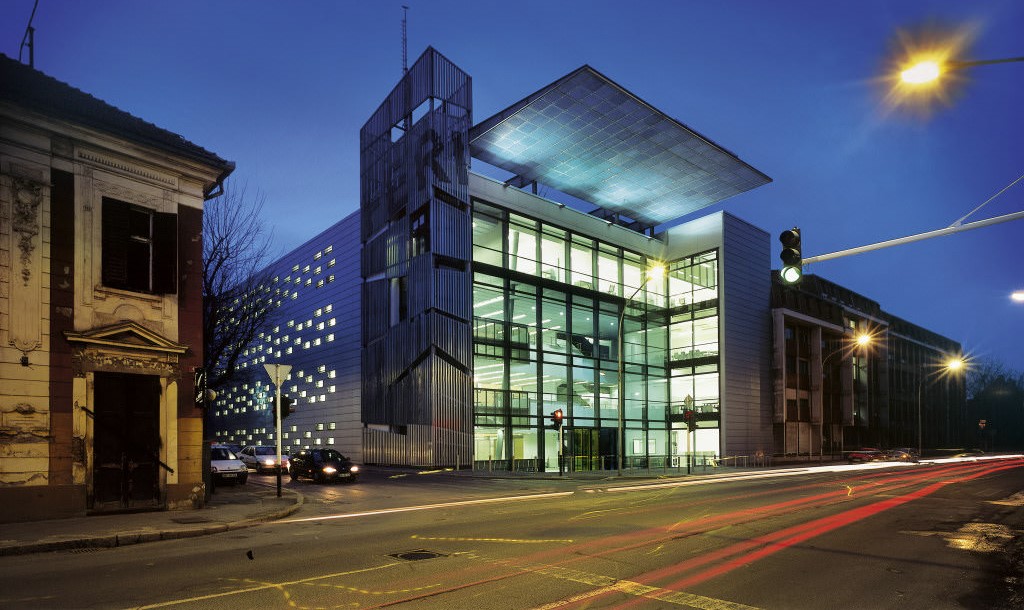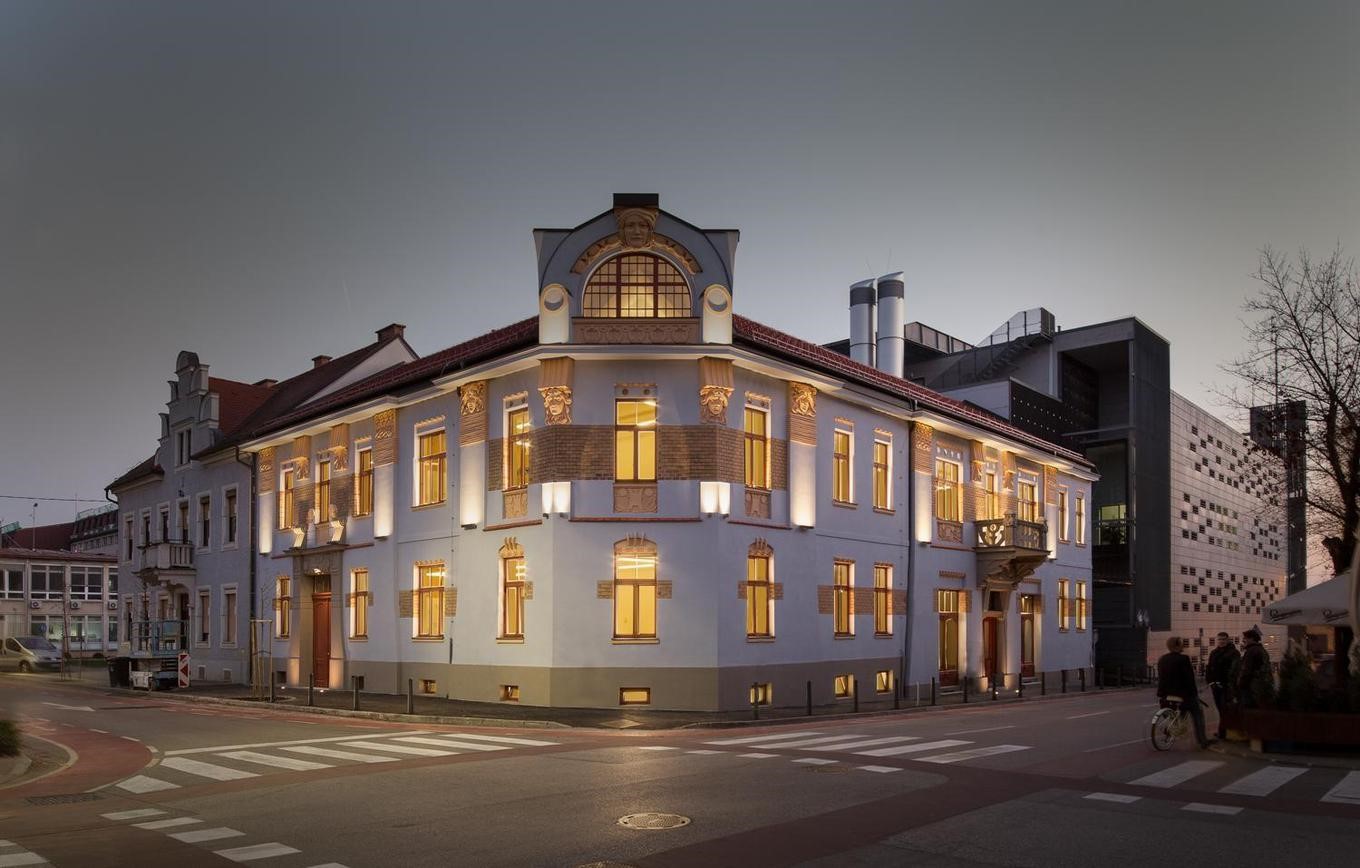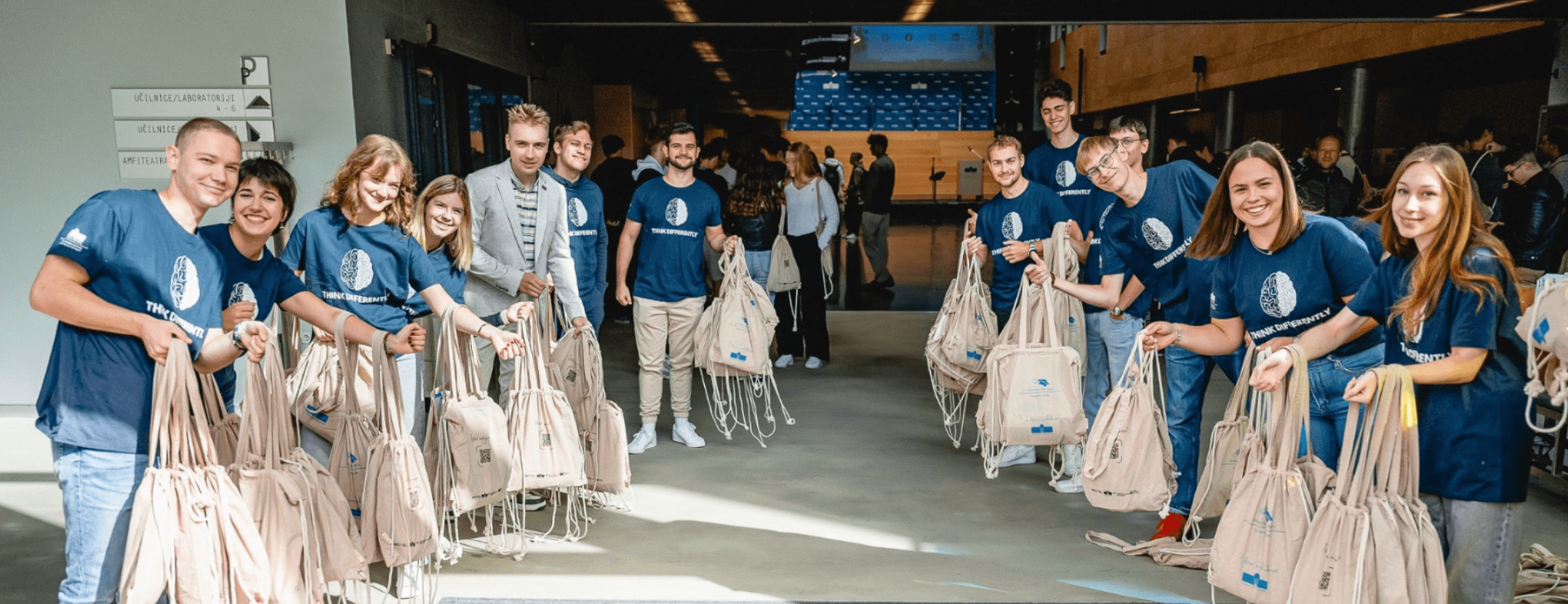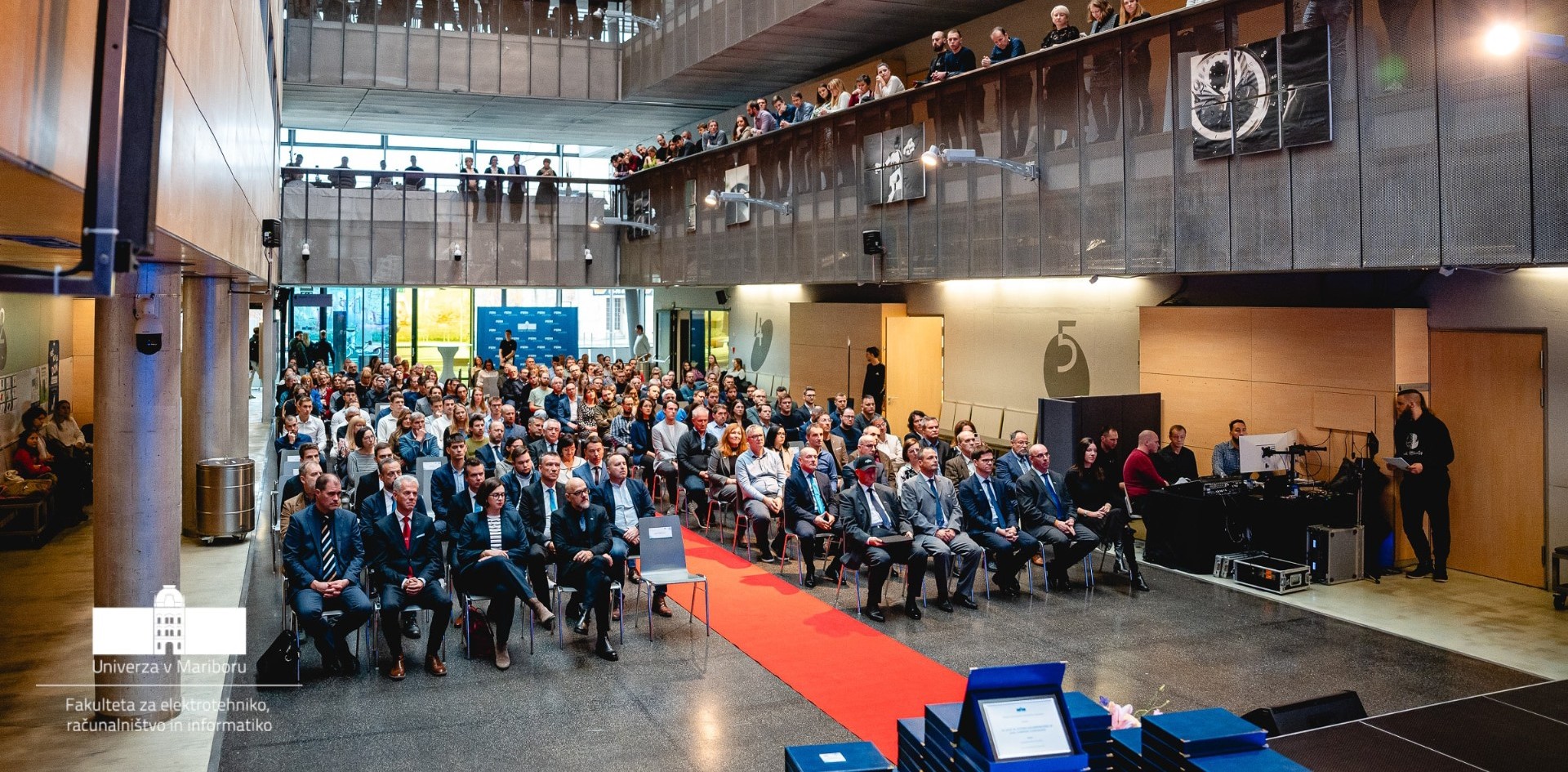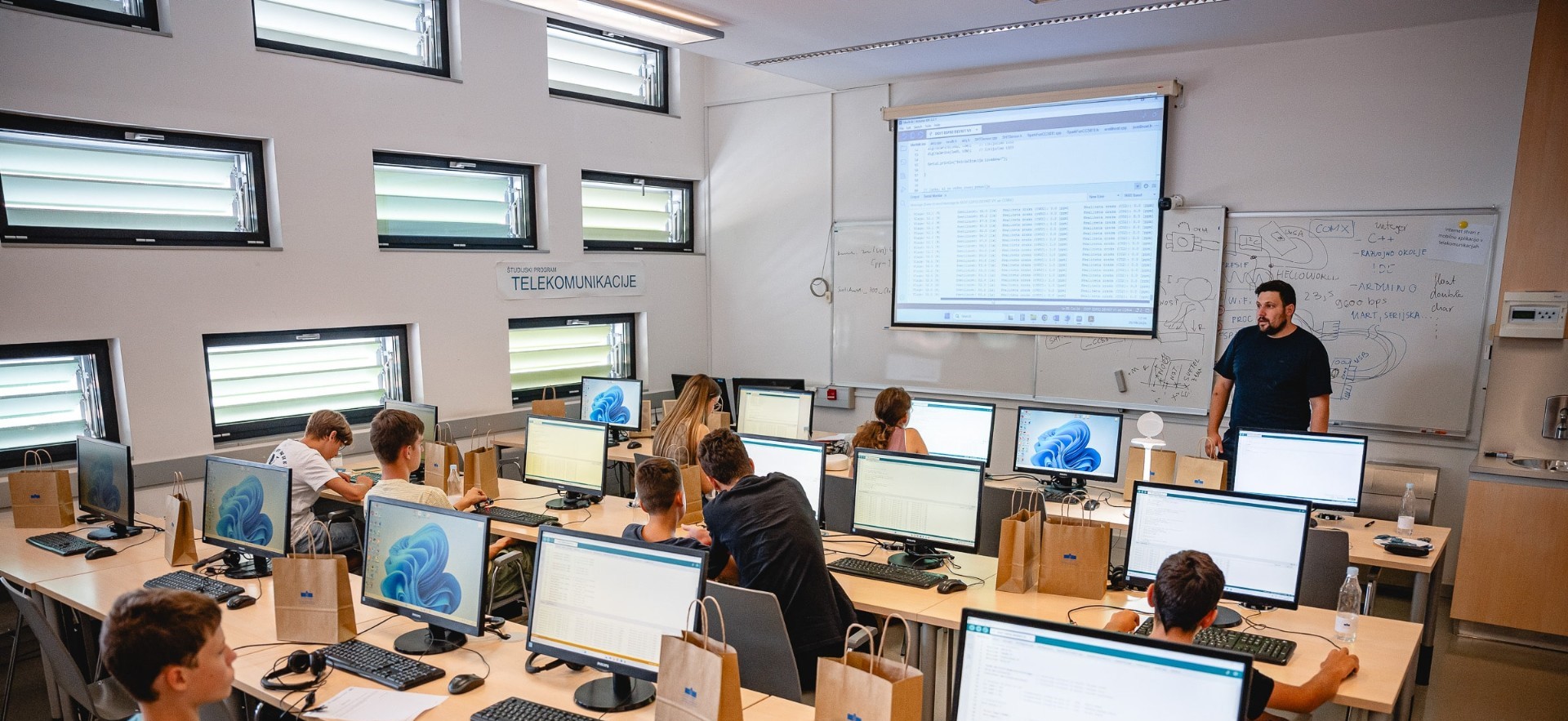Latest news
ERK 2025
From 25 to 26 September 2025, a conference took place at the Bernardin Congress Centre in Portorož, organised by the Slovenian IEEE Section in cooperation with the Faculty of Electrical Engineering, University of Ljubljana, and professional associations.Researchers and experts presented achievements in electronics, telecommunications, automation and robotics, computer science, biomedical engineering, power engineering, and other contemporary fields. The programme was enriched by invited lectures highlighting new trends and opportunities for the future development of the profession. Matej Habjnaič presented a paper titled "Stiskanje verižnih kod z uporabo variante kodiranja ponavljajočih se znakov" in the student section of the conference.
Read more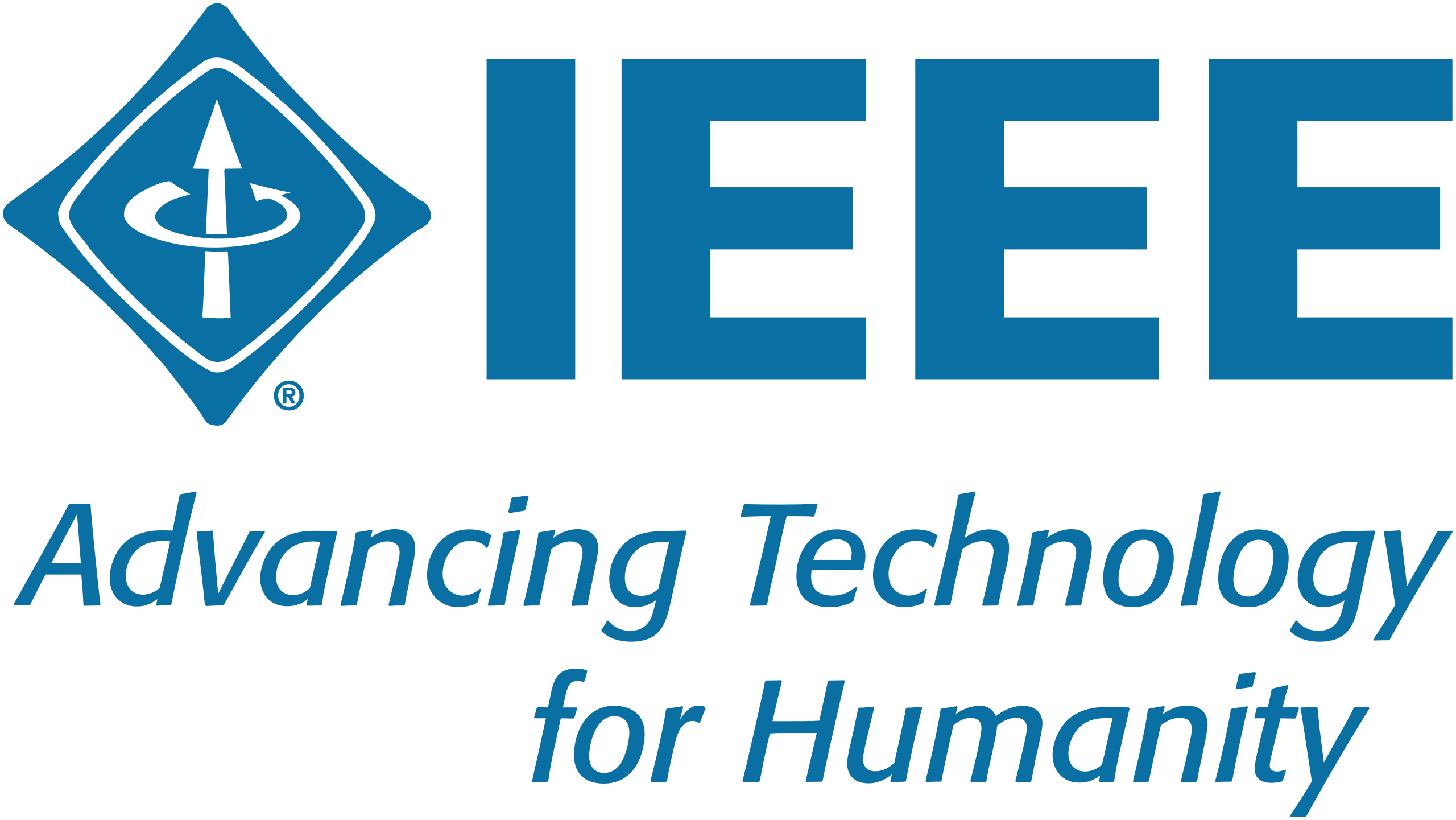
OTS 2025
At the OTS conference held on September 4, 2025, at the Faculty of Electrical Engineering and Computer Science (FERI), the new CEF AI/Digital community was presented as part of the European project EU.FFICIENT. The community aims to promote ethical and responsible use of artificial intelligence, ensure alignment with EU regulations, and foster collaboration between academia, industry, and civil society. During the workshop, Bojan Žlahtič and Milan Zorman addressed pressing challenges brought by generative models, including bias, hallucinations, and algorithmic transparency. Participants gained insight into what happens “behind the curtain” of AI and had the opportunity to critically assess emerging tools. The event highlighted the role of facilitators in connecting diverse stakeholders and creating synergies that can drive innovation and broader societal impact.
Read more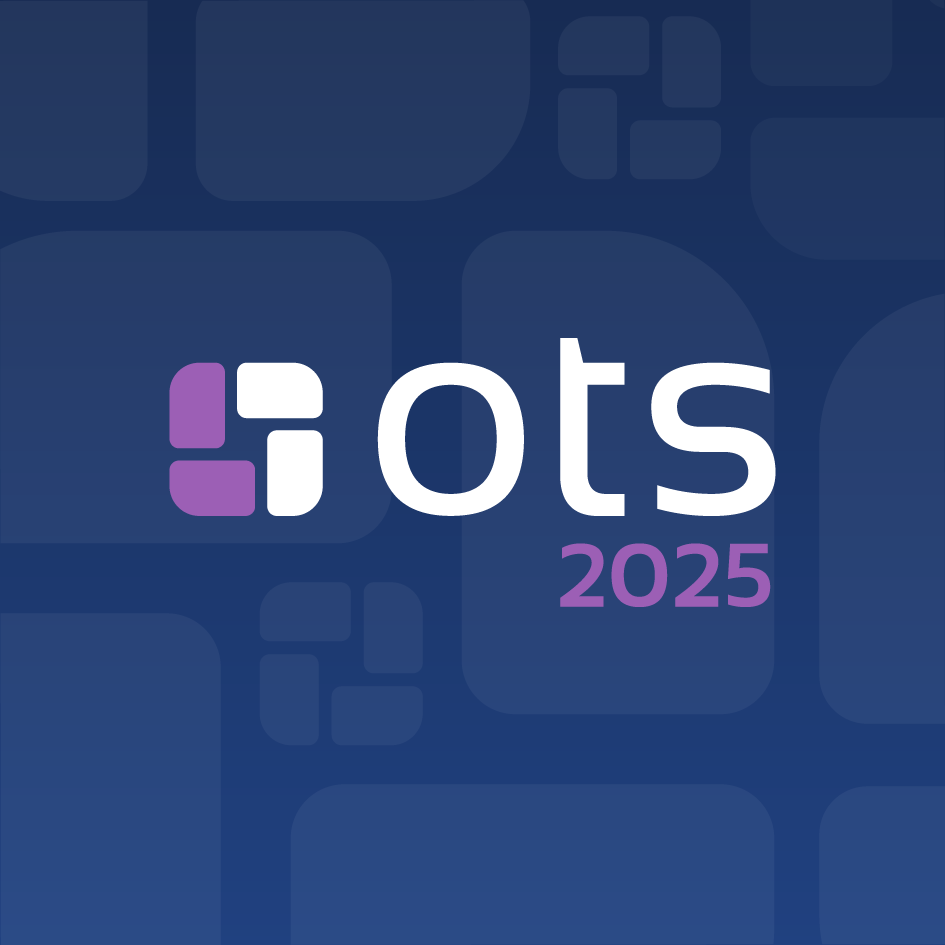
IRDO 2025
(12 June 2025, Slovenia) The 20th IRDO International Conference: INNOVATIVE, SUSTAINABLE AND SOCIALLY RESPONSIBLE SOCIETY 2025: Personal responsibility as part of social responsibility and sustainability took place from 11 to 12 June 2025 in Slovenia, online, and on the second day also in the premises of the Faculty of Economics and Business, University of Maribor. The conference brought together more than 100 authors with 56 contributions from over 10 different countries. The organisers of the conference were IRDO – Institute for the Development of Social Responsibility, the University of Maribor, the Faculty of Economics and Business, the Slovenian Society for Systems Research (SdSr), and WOSC, with several supporting partners. The conference was co-financed by the Office of the Republic of Slovenia for Youth and sponsored by Medis-M, Atlas Express, and Press Clipping. At the opening of the 20th IRDO International Conference, participants were welcomed by Prof. Dr. Polona Tominc, Dean of the Faculty of Economics and Business at the University of Maribor; Emeritus Prof. Dr. Dr. Matjaž Mulej, President of the Scientific and Professional Council of IRDO and Chair of the Conference Programme Committee; Mag. Anita Hrast, Director of the IRDO Institute and Chair of the Conference Organising Committee; and Assoc. Prof. Dr. Igor Perko from the Faculty of Economics and Business, University of Maribor, Vice-Chair of the Conference Programme Committee. Over the two days, participants and authors, including more than 30 students, discussed personal responsibility as part of social responsibility and sustainability. Among the authors were also researchers and leading experts who took part in thought-provoking discussions and explored innovative solutions addressing some of the most critical issues of our time. Dr. Perko commented on the conference: “At the 20th IRDO International Conference, 132 academics, experts, retired professionals, and students from more than 10 countries contributed to bringing together important topics on personal social responsibility, institutional frameworks and support initiatives, as well as learning mechanisms and accountability in both the real and digital worlds. The purpose of the conference is to serve as a space for the exchange of experiences among systems thinkers, cyberneticians, professionals, academics, and students – especially those born in the digital age. In fact, for everyone who wants to understand the mechanisms that can guide personal (digital) responsibility towards the sustainable co-creation of a responsible society. We are especially proud that enthusiastic students took part in the conference, exploring (non)sustainable digital development and introducing building blocks of personal and digital responsibility.”
Read more